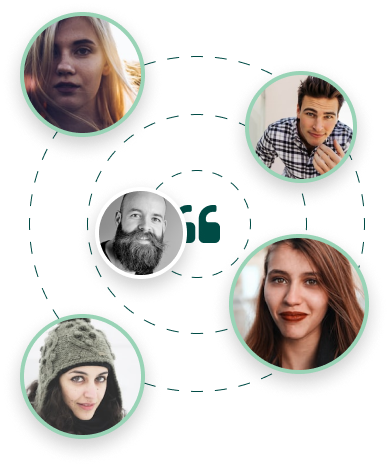
Have you ever noticed that everything is better after a good night’s sleep?
In his excellent book, Why We Sleep, neuroscientist Professor Matthew Walker writes: “Sleep is the bedrock of health, on which exercise and nutrition sit.”
Adequate sleep is crucial for almost every bodily, psychological and cognitive function, and yet a report conducted by researchers at the University of Adelaide has shown that around 40 per cent of Australian adults are not getting enough.
This has important consequences for long-term health, increasing risk of dementia, heart disease and diabetes. But it also means almost half the population are spending their days simply not feeling and thinking as well as they could.

The electrical activity in the brain is remarkably different when we are asleep compared to when we are awake. Our brains cycle through two type of sleep: non-REM which is characterised by slow waves of electrical activity that propagate through the brain, and REM which is when we dream.
Professor Walker’s research has shown that both non-REM and REM sleep are crucial to brain health.
While we are in non-REM sleep, parts of the brain that are distant from each other communicate, which helps to consolidate memory. REM sleep has a role in working through complex ideas and emotions. In studies of people selectively deprived of REM sleep, participants started to hallucinate during the day. Sleep not only facilitates new learning, it also clears the way for retention of yet more new information when you wake up.
Another reason sleep is so good for your memory is it improves levels of brain-derived neurotrophic factor, stimulating growth of neurons and neuroplasticity, which is particularly important for the hippocampus (a crucial memory structure).
Anyone who has felt grumpy and foggy after a night of poor sleep will not be surprised that the sleep-deprived also have lower levels of activity in the parts of the brain that involve problem solving and emotional regulation. We also have trouble paying attention, which is directly related to how strong our sleep drive is from the hours we have been awake.
Even the parts of the brain that help us make sensible decisions are over-ridden by the more pleasure-seeking impulses, which combined with poorer appetite regulation, leads to overeating low nutrition, high energy food like chips and chocolate.
Poor sleep quantity and quality is also linked to depression and anxiety. It is likely that this is a bidirectional relationship, with lack of sleep both causing and being caused by mental health conditions. While researchers are still learning about this, shorter sleep duration does induce a stress state in the body, shown by changes in cortisol release. It is likely that this same mechanism drives the link between sleep and chronic disease, like diabetes, heart disease and dementia.
For those reading this who have trouble falling asleep, getting ready for a restful night should begin at the start of the day.
Strategies like a regular bedtime and awake time, bright light in the morning and dimming the lights before bed as well as cooling the bedroom to around eighteen degrees are all strategies that can help our body’s own rhythm. Since caffeine takes around six hours for half to be metabolised, avoid it after midday. Alcohol may make us feel drowsy, but it also prevents us falling into a deep and refreshing sleep, and is best avoided close to bedtime.
Another approach is mindfulness. Psychologist Dr Allie Peters, of the Three Seas Group, explains that sleep is a state where the parasympathetic, or relaxation branch of the nervous system is at the fore, rather than the flight or flight sympathetic nervous system, that is often active during the day.
So many of us spend the day with divided attention: listening to our kids, while checking our email and planning a shopping list, rarely stopping to be in the moment. Mindfulness is a state of non-judgemental present focused attention. This can be as simple as slowing down by reading a book with no distractions in the lead up to bed, to take us away from the conscious active world, to the rest our brains so badly need.
The evidence that sleeping well is good not only for the long-run but to function as well as you possibly can in the present is overwhelming.
If you are worried about your sleep, it can be really helpful to see your doctor to rule out any contributing medical conditions, and potentially receive a referral to a sleep physician and psychologist.
In researching this article, I was forced to confront my own sleep habits. I frequently have broken sleep, partly thanks to two of my three children who don’t consistently sleep through the night, but I also fall into the trap of checking Facebook late at night or watching just one more episode on Netflix.
I don’t have trouble falling asleep, but I have realised I need to give myself enough sleep opportunity by making it a priority.
There are no guarantees I’ll get the long-term benefits, but a clearer head today is more than enough for me.
Dr Kate Gregorevic is a doctor at Royal Melbourne Hospital.





